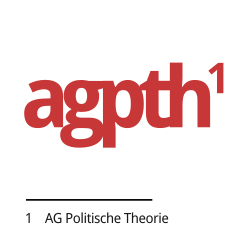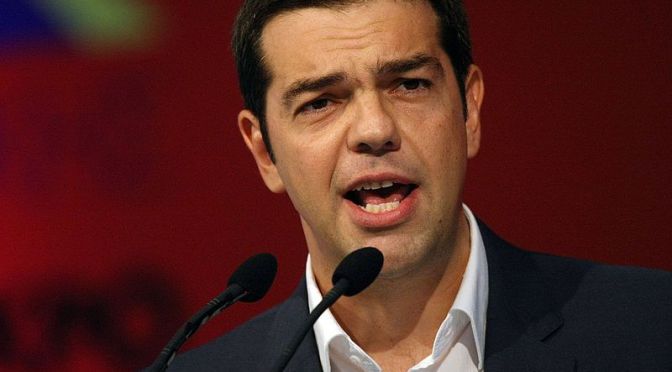Der aktuelle Lesekreis der AG Politische Theorie zum Werk von Claude Lefort hat bereits einige Diskussionspunkte und Fragen aufgeworfen. Mit ‚Die Frage der Demokratie’ kommen wir nun zu einem weitaus prägnanteren und darüber hinaus oft zitierten Beitrag des französischen Philosophen. Eingangs möchte ich kurz auf den Methodenaspekt eingehen, der von Stefan bereits in der letzten Diskussion eingebracht wurde. Denn das unablässige Argumentieren Leforts gegen bestimmte Konzepte, welche dann als Negativfolien zur Entwicklung der eigenen Argumentation dienen, kann in diesem Fall zur Strukturierung des Textes herangezogen werden. Dabei zeigt sich eine gewisse Nähe zu den Arbeiten von Chantal Mouffe, die sich wiederum bereits in ihrem Hauptwerk auf Lefort bezogen hatte (Laclau/Mouffe 1991: 231f). Leforts – etwas großspurig klingendes – Anliegen einer „Wiederherstellung der politischen Philosophie“ (Lefort 1990b: 281) verfährt demnach in fünf Schritten, die im folgenden nachvollzogen werden. Lefort: Die Frage der Demokratie weiterlesen
Schlagwort: Ernesto Laclau
How Populism can save European Democracy
Wolfgang Schäuble does not strike us as a very happy person. Indeed the grumpiness of the German Minister of Finance reached new heights after Greek election night. The incoming radical left-wing government in Greece had promised to stop “fiscal waterboarding”[1] and therefore to challenge austerity measures imposed by the Troika and German policy makers.
Later this week Schäuble’s new Greek counterpart Yanis Varoufakis criticized the outgoing government ruthlessly for “huge toxic mistakes”[2] that had been made when austerity measures were negotiated. Alexis Tsipras’s new outspoken Finance Minister, an Essex University graduate shows fighting spirit to tackle financial agreements with the EU right from the very start. Varoufakis is proposing a “pan-European deal to reboot [our] economies.” Does that make Varoufakis a populist? If so, how can we meaningfully talk about populism in this context?
Towards a new populist politics?
Argentinian philosopher Ernesto Laclau has done much work to elucidate this term. For Laclau populism is simply the construction of “the people” – an appeal to unity beyond race, gender or strict class divisions.[3] Populism denotes the construction of a heterogeneous bloc of ‘outsiders’ against ‘the establishment’.
We can observe this rhetoric in Syriza’s campaign. Syriza construed itself as the agent of the poor with their MPs donating 20 per cent of their salary to a fund called “Solidarity for All” that supports grassroot politics.[4] More prominently Syriza is an anti-austerity party rallying against EU imposed measures that force Greece to cut on social welfare and jobs.
Syriza manages to unite a multiplicity of disparate grievances under the common banner of “anti-austerity”. This linkage of different claims and groups is called „chain of equivalence“ in Laclau’s terminology. During Syriza’s campaign this chain got longer as Podemos from Spain and the German party die Linke showed support for Syriza’s ambition. What is crucial here is that Syriza articulates a clear-cut opposition between the ‘underdogs’ (the wretched Greek population, Europe’s lost young generation, anti-austerity grassroot activists and so forth) and the ‘establishment’ (European technocrats, the old political class in Greece etc.).
Populist democracy
Syriza already announced the following measures: reemployment of workers in the public sector that got fired during the crisis, making hospital visits free of charge and granting children from immigrant background Greek citizenship. What is more is that Syriza opened up a discussion over the meaning of “social justice” in Europe. Before Syriza was elected Schäuble and Barroso were ready to acknowledge the hardships that austerity politics brought along. At the same time they insisted that there was no alternative to austerity. Syriza is a game changer as it opened up the imaginary of another Europe (of the people against the hegemony of banks). The austerity-“consensus” shared among European elites is eroding.
Save the date: Essex event on Populism
On 12 February at 4pm everybody is invited to Essex University to discuss the future of populist politics at the symposium Populism and Emancipation(s): The political legacy of Ernesto Laclau. High rank members of Syriza and Podemos as well as leading Laclau scholars will be discussing on that day.
[1] J. Henley, ‘Greek PM Alexis Tsipras appoints radical economist to new government’, The Guardian, 27 January 2015, available at http://www.theguardian.com/world/2015/jan/27/greek-pm-alexis-tsipras-economist-yanis-varoufakis
[2] H. Smith, ‘Greece’s new young radicals sweep away age of austerity’, The Guardian, 28 January 2015, available at http://www.theguardian.com/world/2015/jan/28/alexis-tsipras-athens-lightning-speed-anti-austerity-policies
[3] E. Laclau, On Populist Reason (London, Verso, 2005).
[4] E. Xiarchogiannopoulou,’How can the radical left and far-right work together in Greece?’, The Conversation, 27 January 2015, available at how-can-the-radical-left-and-far-right-work-together-in-greece-36787

